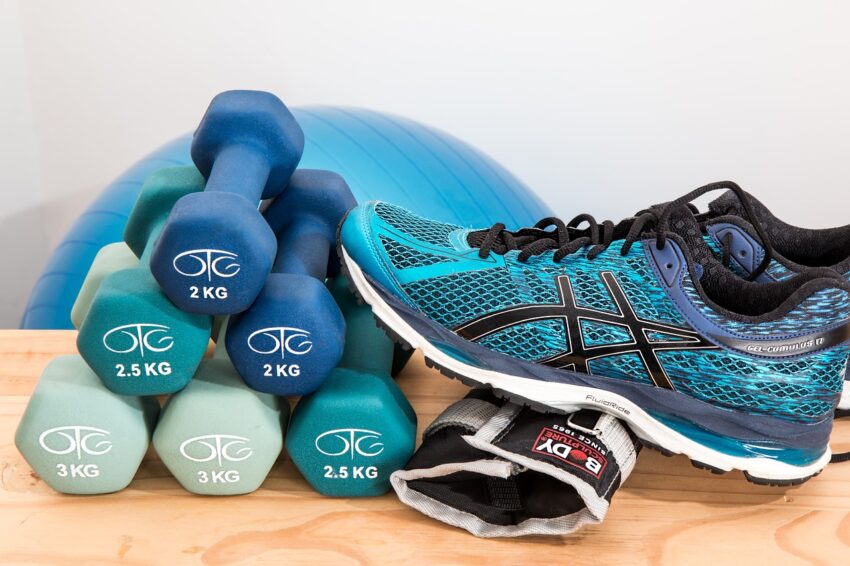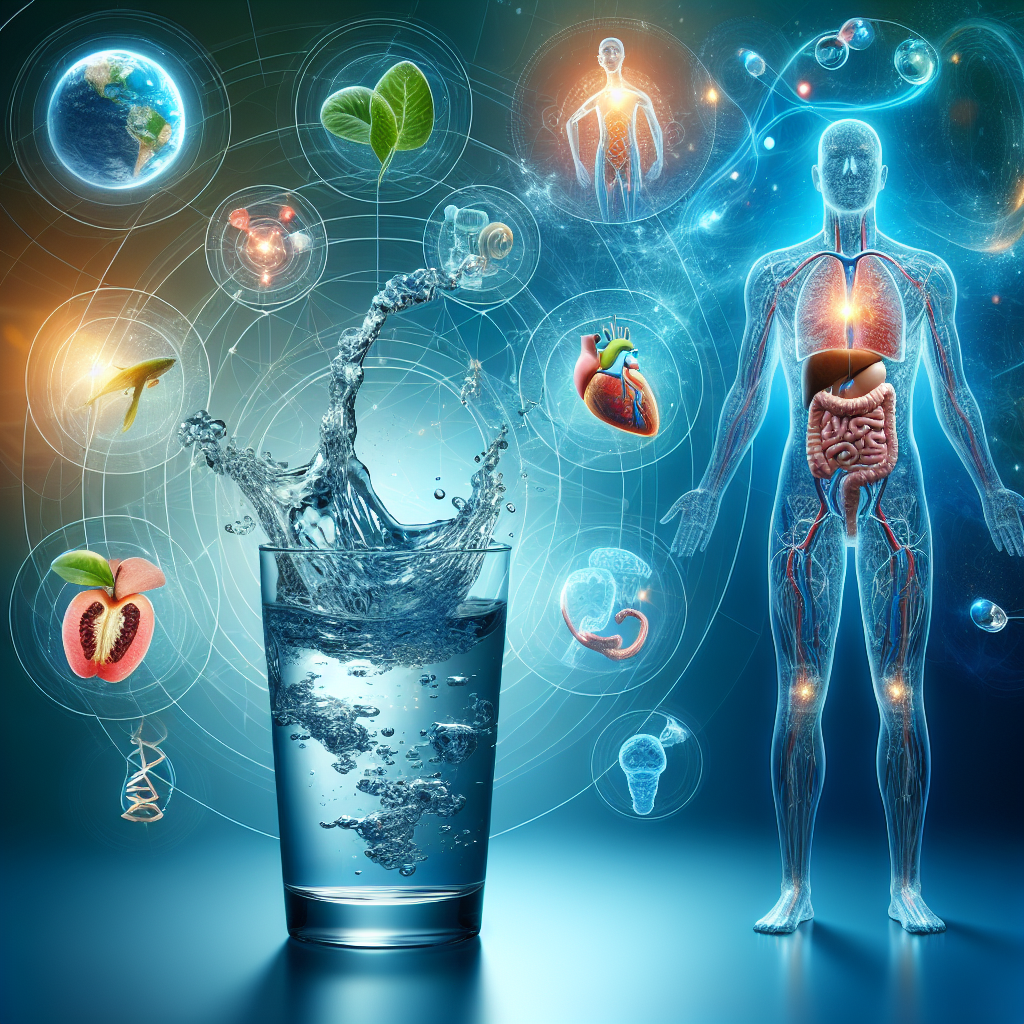The Importance Of Hydration: How Water Impacts Your Health

Water is essential for our overall health and well-being. It plays a crucial role in multiple bodily functions, from regulating body temperature to aiding in digestion. In this article, we will explore the importance of hydration and how drinking enough water can positively impact your health. Whether you lead an active lifestyle or spend most of your time at a desk, understanding the significance of staying hydrated is key to maintaining a healthy body and mind. So grab a glass of water and let’s dive into the world of hydration!

1. Physical Performance
1.1 Effects of Dehydration on Exercise Performance
When it comes to physical performance, hydration plays a crucial role. Dehydration, which occurs when your body loses more fluids than it takes in, can have a detrimental impact on your exercise performance. As you exercise, your body heats up, and sweating helps regulate your body temperature. However, when you’re dehydrated, your body has a harder time cooling down, leading to decreased endurance and increased fatigue.
Lack of proper hydration can also lead to muscle cramps, which can be quite uncomfortable during exercise. Additionally, dehydration can impair your body’s ability to transport oxygen and nutrients to your muscles, limiting their ability to perform at their best. It’s important to note that even mild dehydration, where you’ve lost just 1-2% of your body weight in fluids, can have a noticeable impact on your physical performance.
1.2 Benefits of Proper Hydration for Physical Performance
On the other hand, staying properly hydrated can have numerous benefits for your physical performance. When you’re adequately hydrated, your body can regulate its temperature more efficiently, preventing overheating and allowing you to exercise for longer periods without feeling fatigued. Proper hydration also improves blood circulation, ensuring that your muscles receive the oxygen and nutrients they need to perform at their peak.
By maintaining optimal hydration levels, you can also reduce the risk of muscle cramps and injuries. Water acts as a lubricant for your joints, ensuring smooth movement and minimizing the strain on your muscles. Furthermore, being well-hydrated improves your overall strength and power, enhancing your athletic performance. It’s clear that proper hydration is essential for maximizing your physical performance and achieving your exercise goals.
2. Cognitive Function
2.1 Hydration and Brain Function
When it comes to cognitive function, staying hydrated is equally important. Your brain is composed of about 75% water, and even mild dehydration can have a significant impact on its functioning. In fact, research has shown that even a 1-2% decrease in hydration levels can result in impaired cognitive performance, including difficulties with memory, attention, and concentration.
Maintaining proper hydration helps ensure that your brain receives the necessary nutrients and oxygen to function optimally. Water facilitates the transportation of these essential elements, allowing your brain cells to communicate effectively. By staying hydrated, you can improve your mental clarity, enhance your problem-solving skills, and boost your overall cognitive function.
2.2 Impact of Dehydration on Cognitive Performance
Conversely, dehydration can have detrimental effects on your cognitive performance. Studies have found that even mild dehydration can lead to headaches, fatigue, and a decrease in cognitive abilities. When you’re dehydrated, your brain has to work harder to perform even simple tasks, leading to decreased productivity and mental performance.
Dehydration can also affect your mood, leaving you feeling irritable, anxious, or even depressed. It’s important to note that these effects can be particularly significant in children and older adults, as they may be more susceptible to the negative consequences of dehydration on cognitive function.
3. Digestive Health
3.1 Water and Digestion
Proper hydration is essential for maintaining optimal digestive health. Water is involved in every step of the digestion process, from breaking down food to absorbing nutrients and eliminating waste. When you’re dehydrated, your body may struggle to properly digest food, leading to digestive issues such as indigestion, bloating, and constipation.
Water acts as a lubricant for your digestive system, ensuring that food moves smoothly through your gastrointestinal tract. It also helps soften stools, making them easier to pass, and prevents constipation. By drinking enough water, you can support your digestive system and promote regular bowel movements.
3.2 Importance of Hydration in Preventing Constipation
One of the most significant benefits of proper hydration for digestive health is its role in preventing constipation. When you’re dehydrated, there isn’t enough water in your intestines to soften stools, resulting in dry and hard stools that are difficult to pass. Chronic constipation can be uncomfortable and lead to various health issues, such as hemorrhoids and anal fissures.
Drinking an adequate amount of water throughout the day can help prevent constipation by keeping your stools soft and easy to pass. It’s also worth noting that increasing your fiber intake along with proper hydration can further improve digestive health and promote regular bowel movements.
4. Weight Management
4.1 Water’s Role in Appetite Regulation
If you’re looking to manage your weight, staying hydrated should be a priority. Water plays a crucial role in appetite regulation and can help you control your calorie intake. Oftentimes, our bodies mistake thirst for hunger, leading us to eat when all we really need is a glass of water. By staying well-hydrated, you can better differentiate between hunger and thirst, reducing unnecessary snacking and overeating.
Drinking water before meals can also help you feel more satisfied and prevent overeating. Studies have shown that people who drink water before a meal tend to consume fewer calories compared to those who don’t. Water can help fill your stomach, making you feel fuller and more satiated, which can ultimately aid in weight management.
4.2 Hydration and Metabolism
Proper hydration also plays a role in maintaining a healthy metabolism. Research has shown that even mild dehydration can lead to a decrease in metabolic rate, which is the rate at which your body burns calories. When you’re dehydrated, your body’s ability to efficiently burn calories is compromised, potentially leading to weight gain or difficulties in losing weight.
Staying well-hydrated can help support a healthy metabolism and ensure that your body is functioning optimally. By drinking enough water, you can help enhance your body’s ability to burn calories and maintain a healthy weight.

5. Detoxification
5.1 Role of Water in Detoxification Process
Detoxification is a natural process through which your body eliminates harmful toxins and waste products. Water plays a crucial role in this process, as it helps transport toxins and waste out of your body through urine and sweat. Proper hydration is essential to ensure that your body can effectively flush out these toxins and maintain optimal health.
Water helps support the functioning of your kidneys, liver, and lymphatic system, all of which play key roles in the detoxification process. By drinking enough water, you can support these organs and facilitate the removal of waste products, promoting a healthy and efficient detoxification process.
5.2 Hydration and Kidney Function
Your kidneys play a vital role in filtering waste products and maintaining fluid balance in your body. Adequate hydration is crucial for optimal kidney function. When you’re dehydrated, your kidneys have to work harder to eliminate waste and maintain fluid balance, potentially leading to kidney stones and other kidney-related issues.
By staying well-hydrated, you can support your kidney function and reduce the risk of kidney problems. Drinking enough water helps ensure that your kidneys have enough fluid to efficiently filter waste and maintain the electrolyte balance necessary for overall health.
6. Heart Health
6.1 Water’s Effect on Blood Pressure Regulation
Proper hydration is important for maintaining a healthy heart. Research has shown that dehydration can lead to an increase in blood viscosity, making it harder for your heart to pump blood throughout your body. This can result in higher blood pressure, which is a risk factor for cardiovascular diseases such as heart attacks and strokes.
By staying well-hydrated, you can help regulate your blood pressure and reduce the strain on your heart. A hydrated body ensures that your blood has the right viscosity to flow smoothly, reducing the risk of cardiovascular issues and promoting overall heart health.
6.2 Hydration’s Impact on Cardiovascular Health
In addition to regulating blood pressure, proper hydration also has other positive effects on cardiovascular health. When you’re adequately hydrated, your blood volume increases, allowing for better oxygen delivery to your muscles and other organs. This can improve your exercise performance and enhance your cardiovascular endurance.
Moreover, being well-hydrated promotes better circulation, as the blood vessels are sufficiently filled with fluid. This not only ensures that oxygen and nutrients reach all parts of your body but also aids in the removal of waste products. By maintaining optimal hydration, you can support your cardiovascular system and reduce the risk of heart-related conditions.

7. Joint and Muscle Function
7.1 Hydration and Joint Lubrication
Proper hydration is essential for the health and functioning of your joints. Water acts as a lubricant for your joints, ensuring smooth movement and reducing friction between bones. When you’re dehydrated, the synovial fluid in your joints, which provides lubrication, can become thicker and less effective. This can lead to joint stiffness, discomfort, and an increased risk of injuries, such as sprains or strains.
By staying well-hydrated, you can support the lubrication of your joints and maintain their flexibility and mobility. This is particularly important for athletes and individuals who engage in physical activities that put strain on their joints.
7.2 Benefits of Proper Hydration for Muscle Functioning
Your muscles also benefit greatly from proper hydration. When you’re dehydrated, your muscles can cramp and tire more easily, leading to decreased performance and an increased risk of injuries. Water is crucial for maintaining the proper balance of electrolytes in your muscles, which is essential for their contraction and relaxation.
Proper hydration also aids in the delivery of nutrients to your muscles, helping them recover faster from exercise-induced damage and promoting muscle growth. By staying adequately hydrated, you can support the functioning and health of your muscles, allowing for peak performance and optimal recovery.
8. Skin Health
8.1 Hydration and Skin Moisture
Your skin is the largest organ in your body and requires proper hydration to maintain its health and appearance. When you’re well-hydrated, your skin retains moisture more effectively, resulting in a more supple and plump appearance. On the other hand, dehydration can lead to dry, flaky skin that looks dull and lacks elasticity.
Water helps improve the production of collagen, a protein that maintains the structure and elasticity of your skin. By staying hydrated, you can support the production of collagen and promote healthier, more youthful-looking skin. Proper hydration also helps prevent skin conditions such as acne and eczema, as it aids in the removal of toxins and promotes a clear complexion.
8.2 Effects of Dehydration on Skin Appearance
Dehydration can have noticeable negative effects on the appearance of your skin. When your body lacks sufficient water, your skin loses its natural plumpness and elasticity, resulting in the formation of fine lines and wrinkles. Additionally, dehydration can make your skin look dull, sallow, and more prone to blemishes and breakouts.
To maintain healthy and vibrant skin, it’s important to drink an adequate amount of water each day. By ensuring that your body is properly hydrated, you can nourish your skin from within and achieve a natural, youthful glow.

9. Immune System Function
9.1 Role of Water in Maintaining Immune System
Proper hydration is vital for maintaining a strong and robust immune system. Water is involved in nearly every function of your immune system, from the production of immune cells to their circulation throughout your body. By staying well-hydrated, you can help ensure that your immune system functions optimally and effectively fights off infections and diseases.
Drinking enough water helps flush out toxins and waste products from your body, reducing the burden on your immune system. It also helps keep mucous membranes in your nose and throat moist, which acts as a barrier against pathogens. By maintaining proper hydration, you can support your immune system’s ability to defend your body and keep you healthy.
9.2 Impact of Dehydration on Immune Response
Dehydration can weaken your immune system and make you more susceptible to infections and illnesses. When you’re dehydrated, the production of immune cells can be compromised, reducing their effectiveness in fighting off pathogens. Additionally, dehydration can impair the lymphatic system, which is responsible for eliminating toxins and waste from your body.
Chronic dehydration can lead to a weakened immune response and an increased risk of infections. It’s important to maintain optimal hydration levels to support your immune system and ensure that it can effectively protect your body against harmful pathogens.
10. Water Intake Recommendations and Tips
10.1 Daily Water Intake Guidelines
The daily water intake recommendations can vary depending on various factors such as age, gender, climate, and activity level. As a general guideline, it is often recommended to aim for about 8 cups (64 ounces) of water per day. However, individual needs may differ, and it’s important to listen to your body’s signals for thirst and adjust your water intake accordingly.
It’s worth noting that the “8×8 rule”, which suggests drinking eight 8-ounce glasses of water per day, is a common guideline, but it may not be suitable for everyone. Factors such as physical activity, climate, and certain medical conditions may require increased fluid intake.
10.2 Strategies to Stay Hydrated
Staying hydrated throughout the day doesn’t have to be a difficult task. Here are some strategies to help you maintain proper hydration:
-
Carry a water bottle with you: Having a water bottle with you makes it easier to drink water throughout the day and serves as a reminder to stay hydrated.
-
Set reminders: Use smartphone alarms or reminders to prompt yourself to drink water at regular intervals.
-
Infuse your water: If you find plain water boring, try infusing it with fruits or herbs to add flavor and make it more enjoyable.
-
Eat water-rich foods: Many fruits and vegetables have high water content and can contribute to your overall hydration. Watermelon, cucumber, and oranges are excellent choices.
-
Track your water intake: Use a water tracking app or journal to keep track of how much water you’re drinking each day.
Remember, proper hydration is an ongoing process. Listen to your body, drink when you’re thirsty, and be mindful of your fluid intake, especially during exercise or in hot weather conditions.
In conclusion, water is a fundamental element for maintaining overall health and well-being. From improving physical performance to supporting cognitive function, digestion, weight management, detoxification, heart health, joint and muscle functioning, skin health, and immune system function, proper hydration plays an integral role in nearly every aspect of our health. By prioritizing hydration and following daily water intake recommendations, you can reap the numerous benefits that water offers and support your body in functioning optimally. Cheers to staying hydrated and taking care of your health!




Leave a Reply